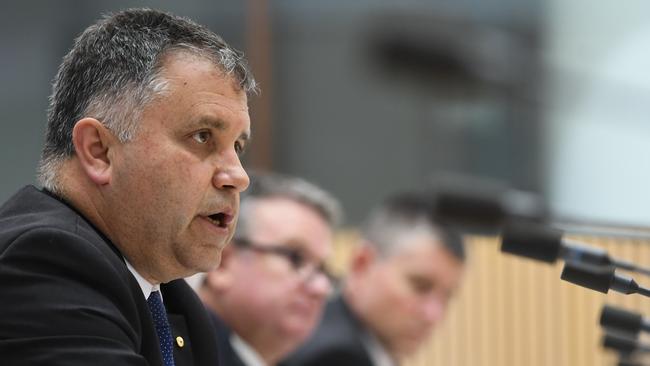Covid-19: National cabinet ‘great mistake’, says business
Business leaders say dismantling COAG to create national cabinet has proved to be ‘one of the great mistakes’ which will come at ‘great cost to the country’.

Business leaders say dismantling the Council of Australian Governments to create national cabinet has proved to be “one of the great mistakes” of the pandemic, which will come at “great cost to the country”.
During a roundtable at the Infrastructure Partnerships Australia 2021 conference, which included Australia Post Super Scheme chair Mark Birrell and Infrastructure Victoria chair Jim Miller, NEC Australia chair Mike Mrdak called for a rethink of the intergovernmental forum to drive the next stage of reform.
Mr Mrdak, a former Infrastructure Department secretary, said that despite initially working, national cabinet had become bogged down by politicisation and was unable to deal with “non-headline, political issues”.
“As we look back on the Covid crisis, the national cabinet has proved to be one of the great mistakes … It was a good mechanism in those early days,” he said. “The dismantling of the COAG mechanisms will come at a great cost to the country. As we’re now seeing, it’s not operating in the way that it’s actually capable of, taking long-term reform issues forward … If we don’t co-ordinate that better to a COAG-type mechanism, then I do worry that we’re not going to be able to achieve the next stage of reform.”
In a bid to create a more effective decision-making mechanism for the nation’s leaders, COAG – the primary forum for federal, state and local governments from 1992 – was scrapped at the onset of the pandemic last year.
Energy Security Board chair Kerry Schott said Mr Mrdak was “absolutely correct” in his analysis, saying there was a lack of co-ordination in the current format of national cabinet.
“And it really makes operating across the national market, and with national outcomes, much more difficult,” Dr Schott said.
Their concerns came after Mr Birrell, a former Victorian cabinet minister, said the federation was under “great stress”, driven by “prolonged and unexpected” border closures. “My hope is that we reflect on this problem in the federation and in the cool light of day — probably 2022 — have a positive discussion as Australians, not as individual members of any single state, about how the borders are going to operate in the future,” Mr Birrell said.
Urban Infrastructure and Communications Minister Paul Fletcher defended national cabinet, saying a lot of the observations were not “very well informed”.
“The more insightful observation is that this was a very flexible and rapid response to a unique challenge,” he told IPA chief Adrian Dwyer on Friday.
“States and territories have a set of responsibilities … and, understandably, premiers and chief ministers, knowing the buck stops with them on those issues, will ultimately make their own calls.”



To join the conversation, please log in. Don't have an account? Register
Join the conversation, you are commenting as Logout